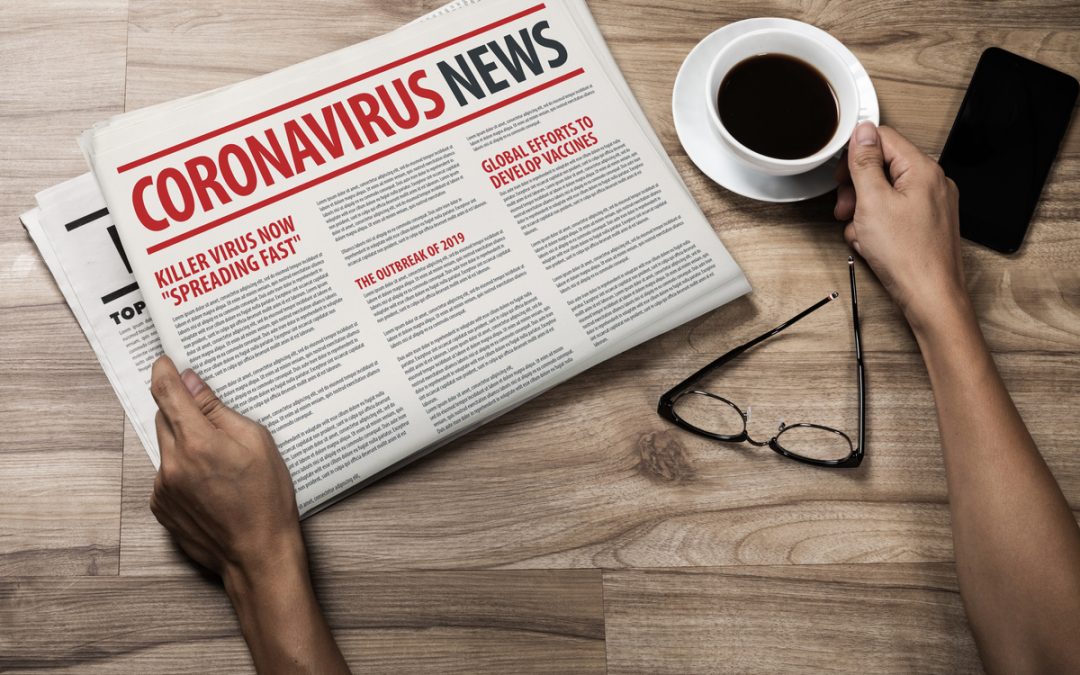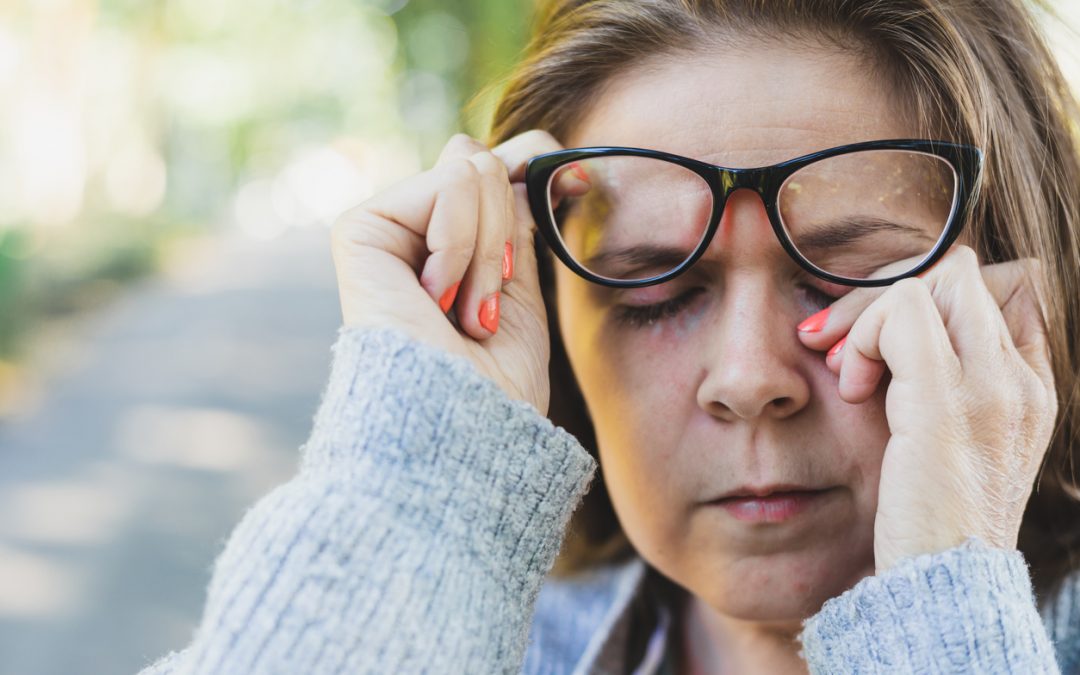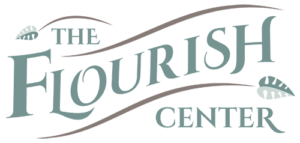
by Jen Owen, N.P. | May 28, 2020 | Seasonal Health
This week, I was able to attend a webinar hosted by the American Herbalists Guild called “Evolving Therapeutic Strategies in the Stages of COVID-19” with Registered Herbalist, Paul Bergner. Paul is known for his decades of herbal medical experience and his expertise as a researcher and his teaching through his school, the North American Institute of Medical Herbalism.
Paul has been gathering information regarding coronavirus since its appearance this winter, including his own experience with the virus. The webinar was to inform us of the research being conducted and effective treatments herbalists are using to reduce duration of symptoms and decrease the likelihood of death from contracting the virus. Thanks to Paul, I am able to share some of this information with you.
Paul introduced us to 5 stages of the virus presentation. Stages 2-4 were what you would expect: mild symptoms moving to more severe symptoms. Stage 1 surprised me and changed my thinking about this situation.
This is how he describes Stage 1:
“Stage 1: Uninfected but vulnerable or at-risk from nutritional status, disease status, lifestyle factors, and nutritional deficiencies.”
Unfortunately, this is most of the United States. This means that a very large percentage of us are already in Stage 1 of coronavirus because of our current health statuses, and we are all at risk for exposure because the numbers of positive tests continue to grow in most places.
Paul went on to describe the basics of preventing Stage 1 with the following prevention strategies:
~Adjusting lifestyle, sleep, and activity levels
~Managing or improving comobidities (chronic diseases that increase risk), such as diabetes, high blood pressure, heart disease, and chronic breathing issues.
~Correcting deficiencies of Vitamin D, Vitamin C, Vitamin E, Vitamin A, zinc, and selenium
~Normalizing omega-3 fatty acid status
If you’ve been following my blog, this should all sound very familiar as I’ve been talking about all of these from the beginning, and this list of preventions are the main focuses of all my work as an Integrative Medicine Nurse Practitioner.
In New York, high blood pressure was the greatest comorbidity with diabetes and obesity coming in 2nd and 3rd. In the UK, chronic heart disease was the highest comorbidity with diabetes and chronic lung disease following close behind.
I’ve also heard the argument that this is an old person’s virus, but interestingly, 25% of the hospitalizations in New York were under 52 years old. With myself coming in at 47, this gives me pause.
Paul also gave us the recent data on the correlation between COVID-19 and Vitamin D status. In the integrative world, we have been following the data on Vitamin D for a long time. We have seen it’s effectiveness in the prevention of respiratory illness. It seems that Vitamin D might actually help the body recognize invaders like the coronavirus more effectively so that the immune system can put up a defensive front more quickly and efficiently.
There are currently 11 formal trials looking at COVID-19 and Vitamin D. While we’re not yet sure if Vitamin D is effective in the cure of COVID-19, we are becoming more sure that having an optimal Vitamin D level lessens the severity of the symptoms related to COVID-19. It seems really strange to me that the powers that be are not promoting this simple and cost-effective prevention strategy.
The webinar went on to describe herbal and nutritional treatment strategies for treating COVID-19 symptoms. I’m very grateful for all this information and I’m stocking my apothecary with further remedies should the need arise for my patients.
The takeaway from all of this is that we need to be thinking of our current health status as an actual stage of coronavirus. If you are at risk because of nutritional deficiencies, comorbidities, or the lifestyle factors you’re currently choosing, now is the time to act!
Comorbidities such as high blood pressure and diabetes often go unnoticed until the symptoms because obvious.
When is the last time you had blood work done?
Do you know your Vitamin D status?
Are you continuing with lifestyle choices that are reducing your chance of fighting this virus should you become infected?
I highly recommend seeing an integrative/holistic/functional medicine practitioner near you. In our work, we look at the whole person (all the risk factors for coronavirus) and help you create a sustainable plan for optimal function of your systems, including your immune system. If you are in Portland, I can help.
It’s not too late to begin moving yourself out of Stage 1. You could still contract the virus and get symptoms, but the data is showing that those who don’t start out in any stage at all are having the greatest chance of less severe symptoms and reduced chance of dying from this novel virus.
To request a new patient appointment with me here at FLOURISH, please submit this form. If you don’t live near me, please reach out to someone in your area soon. And, of course, share this post with friends who need this information too!

by Jen Owen, N.P. | May 15, 2020 | Integrative Medicine
I don’t know about you, but I’m still kind of in shock about everything that’s happened over the last two months. I’m sharing this vulnerable post with you in case you’ve been in a similar boat as I’ve been in. ?
It was actually kind of fun at first to know I had to stay home and I could eat and drink whatever I wanted. I honestly thought we were looking at a couple of weeks or a month at most. Here we are passing the 2 month point and obviously things are going to be very different going forward.
Over the past two weeks, that reality has started to set in for me, and I’m having to think about things differently:
What will I snack on if I don’t want to gobble down an entire bowl of popcorn anymore?
How will I create sustainable exercise when my gym is closed and I’m not sure I’ll even want to go when it opens again, since I’ll probably have to wear a mask while exercising and the sauna will likely be closed for a long time?
How do I keep myself busy and not feel lonely while we’re still supposed to continue to shelter-in-place in my county without binging on tv on the couch or drowning in social media (I’m SO sick of social media right now, aren’t you? Bleh!)?
Mostly, though, how will I deal with all of the emotions of all of this without my numbing out go-tos, like carbs, tv, and social media.
In case it helps, here’s what I’m choosing to do:
~I’ve totally cut out alcohol. I didn’t drink for 1.5 years because of the way it made me feel. I tried experimenting with it again for about 6 months. It’s alienating not to be part of alcohol culture, and yet, it’s just not for me. I don’t enjoy the weight gain, inflammation, headaches, and grumpiness I get from even a small amount. My energy and truly, my life overall, is SO much happier and vibrant without it.
~I’m eliminating foods that I know bother me and cause inflammation (if you’re not sure what I’m talking about with inflammation, check out this blog). For me this includes sugar, grains, beans, and dairy. I don’t eat a lot of these normally anyway, so it’s not too hard, but does require more planning and well, I’ve the time right now. I’ll go back to eating all of these in small amounts in about a month, but stopping them for 30 days or so will allow my gut to heal from overeating them all.
~Instead of going straight to coffee in the morning, I start the day with some warm water with lemon or apple cider vinegar. Wow! What a jolt you get from this. If you only do one thing from this list, try this and see what happens, and tell me what you think. (The coffee comes after…I’m never giving that up!)
~I’m not checking social media or email for at least an hour after I get up. I started doing morning quiet time many years ago, but recently, I’ve let myself check things on the internet when I wake up. When I do that, I immediately get into everyone else’s stuff before I even have time to get into my own. When I make time to meditate, do some deep breathing, journal, read, or something else inspiring first thing in the day, I’m better able to handle all the madness that is our reality right now.
~I let myself rest when needed. This is stressful. Whether we are experiencing extreme difficulties from this virus or not, we are all feeling extra stress. Instead of jacking up on afternoon coffee to keep going or feeling like I have to work all the time to have some control, I’m saying ‘screw it’ and I’m sitting out in the lawn chair on a nice day or just lying down on the couch and doing nothing whenever I feel like the need. And truly, I’m getting better work done rather than busy work.
~I’m being extra nice and compassionate to myself. I’m not judging myself for any of the choices I made up until recently. I coped with everything and I survived. And, I can’t sustain that lifestyle forever and get to feel the way I want to feel, so it’s onward and upward with no looking back. I’m not perfect and I know I’ll continue to numb out sometimes, so instead of beating myself up when I do, I forgive myself and get back to it.
~I’ve held off on heavy exercise while I made these changes. Change can be hard and healing is exhausting. It takes a lot of energy for your body to re-regulate after overindulgence, so I’ll worry about that part later.
I know that list might feel overwhelming to some of you. For me, I do most of these things anyway in my normal life, but when things get stressful, I forget. I go the easy way. I want to numb out rather than deal with the emotions that come up.
It’s really normal to want to push away the things that make us uncomfortable. It can feel so much easier to pour that glass of wine and keep going than let ourselves break down a little. I’d often rather eat that popcorn and butter (God, I love butter!), then cut up some veggies or fruit or satisfy my fat craving with avocado.
So, what do you want your new normal to look like? Maybe write down what your new ideal schedule and energy will look and feel like. Then, start with 1-2 things that will help you get there. Drink some lemon water in the morning, choose a food that makes you feel great over one that makes you feel like crap. Read an inspiring health book (I have a long list if you need a suggestion), reach out for help in all the amazing groups out there, find an integrative/holistic provider to see, seek counseling if you’re really stuck, take a nap, go to bed early, say no to a drink when that’s what you really want to say, call a friend when you feel sad or lonely, take a stroll instead of a power walk,.. you get the idea.
If I can help in any way, please let me know.

by Jen Owen, N.P. | May 8, 2020 | Integrative Medicine
Written by Jen Owen, our Integrative Medicine Nurse Practitioner
One of the commonalities I’ve observed in the “at-risk” groups for COVID is the common theme of chronic inflammation. In the integrative world, we’ve been looking at inflammation as a “root cause” of disease for a long time.
Inflammation can be a very good thing. If you sprain your ankle, for example, your body sends in the troops to manage the damage. Inflammation causes the swelling, redness, and heat and activates the healing processes.
Unfortunately, in today’s society of stress, processed foods, unhealthy fats, large sugar intake, and overindulgence in alcohol, inflammation becomes chronic. Those same processes that are in place to protect our bodies become overwhelmed with the jobs they have to perform to keep up with how we actually treat our bodies.
Evidence is rising to support inflammation as a root cause of coronary artery disease (CAD), type II diabetes, cancer, and Alzheimers, and I have found it to be the cause of most gut issues, chronic pain, autoimmune conditions, and more.
I won’t go into all the science here. Just know this. When the inflammatory response has to work so hard and for so long and when it’s exposed to invaders it’s not meant to deal with (think sugar, alcohol, and processed foods), the response becomes chronic. So basically, your body is in a state of constant inflammation, which is what is very likely causing weight gain, fluid retention (puffiness), joint pain, bloating, and many other symptoms, chronic disease, and making people more susceptible to infections.
I once heard someone describe working with the “root cause” of conditions like this: When you get flies from a large pile of garbage, it won’t matter how many cans of insecticide you spray, you won’t get rid of the flies until you get rid of the garbage. We have to uncover the cause of the inflammation (the garbage) before we start throwing insecticide on it (drugs, surgeries, and even supplements).
I’m not a practitioner who asks people to give up everything at once. I’d love to see that happen, but it’s not practical in today’s world. I usually start with this question, “What’s the one thing in your life that you know deep down is a problem for your health?” Almost everyone has that one thing. Just start there. Or, maybe that one thing feels too big, so start with something small and gain some traction before tackling the larger one.
Here are some simple suggestions to help:
Could your diet use some help?
Start by practicing the rainbow diet. Try to eat every color of fruits and vegetables every day. Colorful fruits and veggies are full of antioxidants which help your body reduce the chronic inflammation. And, you’ll be more full from eating foods that help and don’t hurt.
If you need help, consider working with your Functional Nutritionist, Peggy Fisher.
Is stress a large factor for you?
Try adding just 5 minutes of meditation. Download a free meditation app and allow yourself a short moment of peace and quiet. You can add one minute at a time. Even a few minutes of quieting your mind can take you out of the “fight-or-flight” high stress mode and begin to reduce inflammation from stress hormones.
If meditation is hard for you, or you need more emotional support, consider working with our Emotional Wellness & Alignment Coach, Erin Chourey.
Are you overindulging in sugar or alcohol?
Take a day off, read one of the amazing books out there about the root causes of overindulgence, and ask yourself the hard questions about why you are really overindulging. Could it be boredom, loneliness, grief, or fear of missing out? When we understand the reasons why we do things, we can find other ways to fill those needs.
Does all of this feel overwhelming?
If it feels overwhelming and like you don’t know where to begin, go and see an integrative/functional/holistic provider. We will check inflammatory markers in your blood, instead of waiting for you to have a long-term issue. If we were looking at inflammation before someone has elevated levels of blood sugar, cholesterol, or positive cancer markers, it is my belief that we could stop a lot of chronic diseases from every occurring in the first place.
If you live in Portland, I’m here to help you. Click here to learn more.
Take good care and watch out for how inflammation might be affecting you and your life. Puffiness isn’t normal, it’s your body telling you it’s working awfully hard and you can absolutely do something about it!
Please ask any questions below and let me know how I can help, and be sure to share this post with friends who might need to read it, too.
*Please note that inflammation is by far not the only root cause of risk for COVID complications. It’s one that I understand and hope to help people uncover to avoid future risk.




Recent Comments